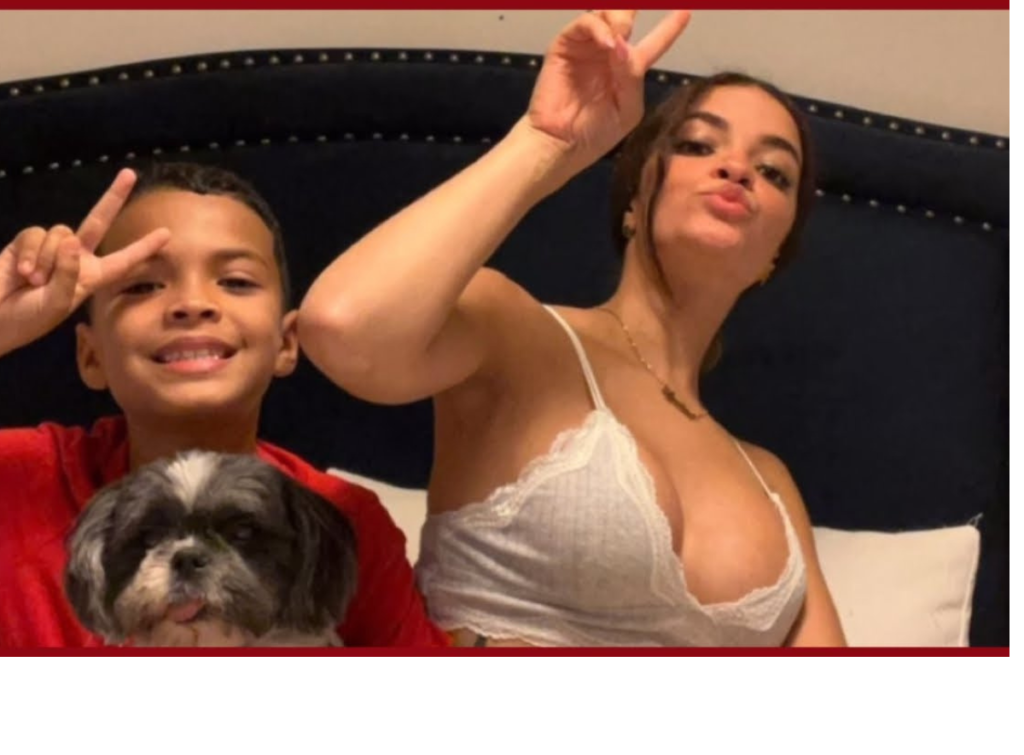
Get full video on link
github.com/trtV9IDDFYRU/Full-Video-Completo-Hermana-De-Keishla-Bereliz-Nichole-Twitter/
The power of social media to make content go viral has been demonstrated yet again with the recent incident involving Bereliz Nichole, the sister of Keishla Rodríguez, whose tragic death in Puerto Rico made headlines in 2021. This time, the focus has shifted to a leaked personal video involving Bereliz, often referred to as the “Full Video Completo Hermana de Keishla Bereliz Nichole.” The rapid spread of this video across platforms like Twitter, Instagram, and Telegram has sparked widespread debate about privacy, the ethics of sharing sensitive content, and the responsibilities of social media users.
Context of the Viral Video
Bereliz Nichole’s private video was shared without her consent and quickly became a viral sensation. The video’s release has drawn massive public attention, largely because of her association with her sister, Keishla Rodríguez, whose death remains a significant and sensitive topic in Puerto Rico. Keishla’s death was a high-profile case that drew widespread media coverage and public sympathy, and her family, including Bereliz, have had to endure the painful aftermath.
Now, Bereliz is thrust back into the spotlight under entirely different circumstances. The leaked video, intended for private use, was circulated without her permission, leading to an invasion of her privacy. The situation highlights the ongoing issue of non-consensual sharing of personal content and the far-reaching impact this can have on individuals and their families.
How the Video Went Viral
The viral spread of the video can be attributed to the nature of social media platforms like Twitter, which facilitate rapid sharing and amplify content in minutes. The video was initially posted on Twitter, where it was quickly retweeted and shared by thousands of users. The hashtag #BerelizNichole began trending, further increasing the video’s visibility and drawing more people to search for it.
As the video gained traction on Twitter, it spread to other platforms, including Instagram and Telegram. The viral nature of the video showcases the challenges of controlling the dissemination of sensitive content once it appears online. Despite some efforts to have the video removed, it continues to resurface on various social media platforms, exposing Bereliz to ongoing scrutiny and harassment.

Privacy Violations and Ethical Concerns
The release of Bereliz Nichole’s video brings to light critical issues surrounding privacy violations and ethical conduct online. Sharing explicit or personal content without the consent of the individuals involved is not just unethical; in many jurisdictions, it is illegal. This incident underscores the dark side of social media, where private moments can become public spectacles with potentially devastating consequences.
The circulation of the video has subjected Bereliz to online harassment, public judgment, and a significant invasion of her personal life. The emotional and psychological impact of such exposure can be severe, as individuals find themselves stripped of their privacy and subjected to widespread criticism. The video’s circulation without consent highlights the urgent need for a deeper understanding of the importance of respecting personal boundaries online.
The Role of Social Media Platforms
The viral spread of the video raises important questions about the responsibilities of social media platforms like Twitter, Instagram, and Telegram. While these platforms have community guidelines that prohibit the sharing of non-consensual content, enforcement is often inconsistent, and videos can go viral before being flagged or removed. This lag in response time means that the damage is often done long before any corrective measures are taken.
Social media platforms must develop more proactive measures to prevent the spread of non-consensual content. Improved reporting systems, quicker removal processes, and stricter enforcement of privacy rules are necessary to protect users from such violations. While some progress has been made, incidents like this one reveal that much more needs to be done to ensure that platforms are safe spaces where individuals’ rights are respected.
The Emotional and Social Impact
The emotional toll of having a private video shared without consent cannot be overstated. For Bereliz Nichole, this ordeal likely represents a deep personal trauma, as she finds herself exposed to a global audience without her consent. Being thrust into the public eye in such a vulnerable manner can have long-lasting effects on an individual’s mental health, including anxiety, depression, and a sense of violation.
The situation has also reintroduced her family into the public conversation, compounding the pain they already endure from Keishla’s death. This incident serves as a stark reminder of the dangers of social media and how quickly private moments can be exploited and turned into public spectacles.
The Need for Ethical Online Behavior
The “Full Video Completo Hermana de Keishla Bereliz Nichole” incident serves as a sobering reminder of the importance of ethical behavior online. Social media users often engage with viral content without considering the consequences for those involved. However, sharing or even viewing leaked videos perpetuates the cycle of privacy violations and public shaming. Respect for privacy and consent should guide our actions online, especially when it comes to sensitive or explicit content.
It is crucial for social media users to think critically about the content they engage with and share. Just because something is available online does not mean it was intended for widespread consumption. By refusing to participate in the dissemination of non-consensual content, individuals can help reduce the harm caused to those whose privacy has been breached.
Conclusion
The “Full Video Completo Hermana de Keishla Bereliz Nichole” controversy highlights ongoing ethical challenges and privacy violations on social media. As this video continues to circulate, it serves as a call to action for both social media platforms and users to prioritize privacy, respect, and responsibility. Platforms must enforce stricter measures to protect users, and individuals must be mindful of the impact their online behavior can have on others.
For Bereliz Nichole, the viral spread of her private video has become a deeply personal and painful ordeal. It is a reminder that behind every viral moment, there are real people who bear the consequences of digital irresponsibility. Respecting consent and practicing responsible digital behavior are essential steps toward creating a safer and more compassionate online community.









